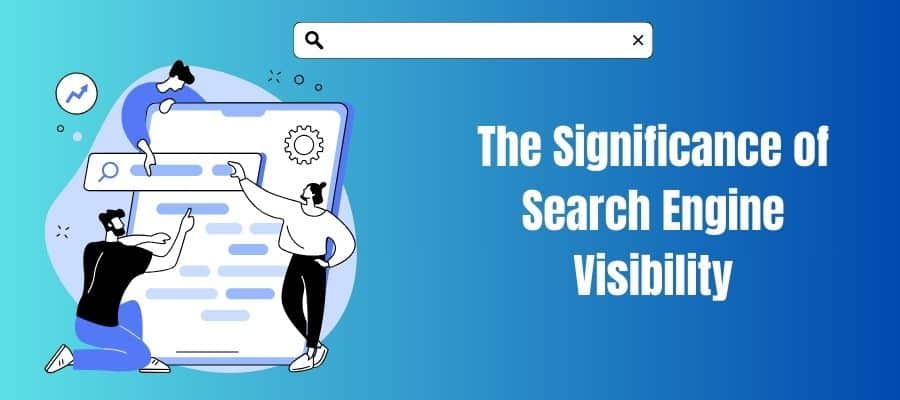What to Do If Banned by Google | Once Interactive
In today’s digital age, establishing an online presence for your business is not just a choice but a necessity. A professional website, while often a costly investment, is a critical component of your business’s success. However, the value of your website can quickly diminish if search engines like Google and Yahoo choose to ignore your online presence.
You won’t never want it in your life, but it always happens without the permission or consent of the owner. In this comprehensive guide, we’ll delve into the importance of search engine visibility, the consequences of being banned by Google, and the steps you can take to rectify the situation. So, let’s get going!
The Significance of Search Engine Visibility
In a world where the internet is the go-to resource for information, products, and services, having a visible online presence is paramount. A professional website serves as the digital face of your business, a platform to showcase your offerings, and an avenue to connect with potential customers. Without proper visibility on major search engines like Google, your online investment is rendered ineffective.
The Power of Search Engines
Consider how you discover a new website or business on the internet. Unless someone personally recommends a site or you come across it on social media, the primary method is through a search engine query. According to eBizMBA.com, Google reigns supreme with a staggering 1.1 billion unique monthly visitors.
Furthermore, Yahoo, Bing, and Ask collectively attract over 100 million unique monthly visitors each. While only a fraction of these users may be actively searching for products or services directly related to your business, the sheer magnitude of these numbers makes it impossible to ignore the potential audience they represent.
If your website manages to capture the attention of just one out of every million internet users per month, that translates to a significant influx of potential customers—approximately 30,000 new prospects can be expected to visit your website each year. This underscores the importance of securing a prime position in search engine results.
The Google Blacklist: What Lands You There?
In the complex realm of search engine optimization (SEO), achieving a high ranking on Google and other major search engines is a coveted accomplishment. However, there’s no one-size-fits-all formula for securing this esteemed status. On the contrary, there are several common pitfalls that can lead to your website being banned by Google, effectively removing it from search results. Understanding these pitfalls is crucial for safeguarding your online presence. Here are a few actions that could lead to your website being blacklisted:
1. Content Duplication:
Copying content from other websites is a surefire way to lose favor with search engines. Plagiarism not only undermines your website’s credibility but can also result in a search engine penalty. To maintain a robust online presence, your content must be original, unique, and tailored to engage and inform your target audience.
2. Low-Quality Content:
Search engines place a high premium on content quality. A website filled with low-quality articles, spam, or irrelevant content is likely to be disregarded or, worse, penalized. Your content should be informative, engaging, and well-researched, ensuring that it resonates with both search engines and human readers.
3. Security Threats:
Websites hosting malware or other security threats pose a risk to users. Search engines prioritize user safety, and the presence of a compromised website can lead to immediate blacklisting. Ensuring that your website is secure and free from potential threats is vital not only for search engine rankings but also for the trust and safety of your website visitors.
The Consequences of Being Blacklisted
Once your website finds itself on Google’s blacklist, the consequences can be severe and far-reaching. The most immediate impact is that your website will no longer appear in search results for relevant queries. This abrupt halt in your organic traffic means that the audience you once relied upon will slowly dwindle, potentially devastating businesses that heavily rely on online visibility. The repercussions of being banned by Google are substantial and encompass several areas:
1. Loss of Organic Traffic:
Organic traffic, generated through search engine results, is often a substantial source of visitors to your website. Once your site is blacklisted, this valuable source of traffic is abruptly cut off, resulting in a significant reduction in site visitors and potential customers.
2. Damage to Credibility:
Being banned by a major search engine like Google can seriously harm your website’s credibility. Users tend to trust websites that appear in the top search results, and the absence of your site from these results can lead to skepticism among visitors.
3. Decreased Revenue:
For businesses that rely on their online presence for sales, the consequences can be even more dire. With reduced website traffic, conversion rates can plummet, leading to a substantial decrease in revenue.
4. Brand Reputation Damage:
Your brand’s reputation can also suffer. The blacklisting of your website may be associated with a lack of security, poor content quality, or unethical practices, all of which can tarnish your brand’s image.
How to Get Off Google’s Blacklist
If your website is already on Google’s blacklist or if you wish to avoid such a situation, there are several steps you can take to address the issue and rehabilitate your online presence. While the recovery process can be challenging and time-consuming, the effort is well worth it, considering the potential damage to your business’s reputation and bottom line.
1. Content Review:
Begin the recovery process by ensuring that your website’s content is not only original but also of high quality and directly relevant to your target audience. Remove any duplicated content, spammy material, or irrelevant articles. A robust content strategy is the bedrock of SEO success.
2. Security Check:
Engage a professional web development company to conduct a comprehensive security audit of your website. This audit will identify and address any security vulnerabilities, malware, or other issues that might be present. Ensuring the safety and trustworthiness of your site is of utmost importance.
3. Google Review Request:
Once you’ve made the necessary improvements, it’s time to submit your website to Google for review. Google will rigorously examine your site to ensure its cleanliness, security, and adherence to its guidelines. Once they are satisfied, your website will be reinstated in search results. However, please note that the recovery process can take time, often several months. Patience and perseverance are key in this phase.
4. Continuous Improvement:
Recovering from a Google blacklist is not the end of the journey but rather a new beginning. To maintain a strong online presence, it’s essential to continue producing high-quality, original content, regularly updating your website, and remaining vigilant about security and compliance with search engine guidelines.
Conclusion
Being banned by Google is a scenario no business or website owner wants to face. The consequences of a search engine blacklist can be severe and damaging, affecting your site’s traffic, credibility, revenue, and brand reputation. To avoid this predicament, focus on creating and maintaining a website that adheres to best practices in content quality, originality, and security.
In the event that your site is already blacklisted, follow the steps outlined in this article to regain your place in search engine results. Your online success depends on it. In the fast-paced and ever-evolving digital landscape, keeping your website in good standing with search engines like Google is an ongoing commitment. By staying true to the principles of content quality, security, and ethical practices.






